One in 20 people suffer from a thyroid disorder. In this exclusive feature, Lara Tarabey investigates the real impact of living with this type of disorder.
Around one in 20 people have a thyroid-related condition and this can be temporary or permanent.
Thyroid disorders are more common than we think.
What is the thyroid?

The thyroid is a small butterfly shaped gland which sits below the voice box at the back of your throat.
It makes two hormones that are necessary for all cells in your body to work normally: thyroxine (T4) and triiodothyronine (T3).
These hormones control the speed of your metabolism which is the process of converting food into energy.
T3 and T4 regulate breathing, heart rate and much more making it a very important part of the endocrine system.
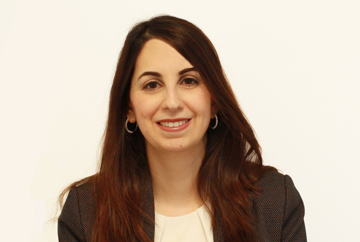
Endocrinologist, Dr Nida Chammas, explained: “Although it is a small part of your body, if there is a problem, it needs to be detected sooner rather than later.
“If it goes completely undiagnosed, then patient’s systems with the organs will start shutting down like the kidneys, the liver and eventually the patient will go into a coma and then death in very severe cases.”
What are the different thyroid disorders?
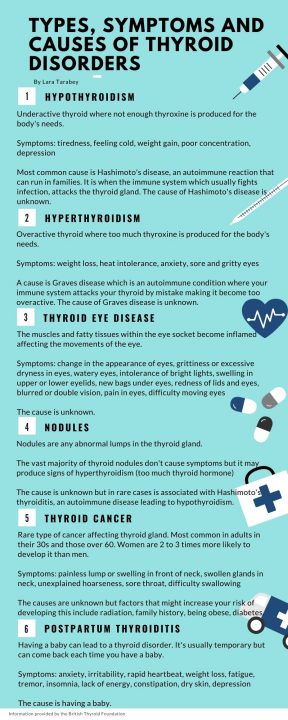
There are different types of thyroid disorders and some are more common than others.
The specific kinds include hypothyroidism, hyperthyroidism, thyroid eye disease, thyroid nodules, thyroid cancer and postpartum thyroiditis.

Julia Priestley, CEO in charge of development at the British Thyroid Foundation (BTF), said: “The most common thyroid disorder is hypothyroidism, which affects mostly women.
“That is when your thyroid gland just can’t produce enough thyroid hormone so everything slows down in your body.”
What it’s like living with hypothyroidism
Author and single mother of 3, Heba Hamzeh, was diagnosed with hypothyroidism in October 2019, due to having an underactive thyroid.

Heba explained: “For five years before being diagnosed, I was frequently fainting and when I would go to the hospital, the A&E doctors would give me IV fluids, say I have low blood pressure and that I was dehydrated.
“On my last visit to hospital, which was due to fainting, the A&E doctor told me that I suffered from vertigo.”
Heba’s symptoms
Describing her symptoms, Ms Hamzeh said: “I would regularly complain to my doctor of the bad headaches, dizziness feeling and inner ear and outer ear aches and pains.
“I also felt tired all day, had no energy and subsequently had to leave my full-time job as a teacher.
“It has been a struggle for me to maintain my weight as I have noticed I have put weight on even though I have not changed my diet, although I am not able to maintain the exercise I used to do because of having no energy and feeling weak.
“I noticed my hair started to fall out which scared me and all the symptoms made me feel sad.”
She added: “This condition is debilitating and it knocked me down physically and emotionally.”
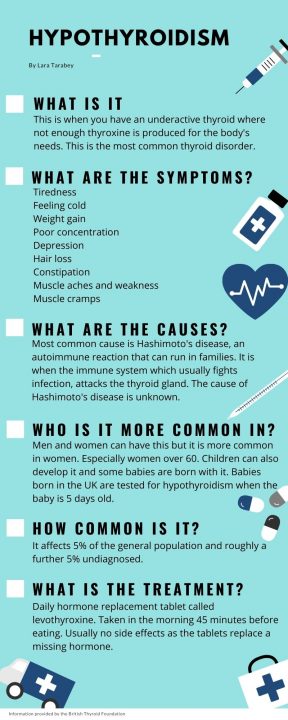
Symptoms like these are common so can be mistaken for other conditions like menopause or depression.
Julia explained that as a result of this, they often hear from patients whose doctors want to prescribe antidepressants.
However, she added: “The patients are reluctant to take them as they feel there’s something else going on.
“Once the doctors acknowledge it’s a thyroid disorder and give the patient the correct medication, their mood should be lifted.”
Although Heba was misdiagnosed, she was determined to get better and find out what was wrong with her for the sake of her children.
She researched day and night, then asked the GP to test her thyroid.
Julia explained: “This is a simple blood test that should be conclusive.”
Following the diagnosis, Heba has to take medication for the rest of her life and the GP does regular blood tests to ensure the correct dosage is being taken.
What is the treatment?
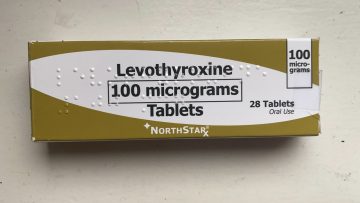
Heba now takes Levothyroxine and Dr Nida said: “The patient must take this tablet daily, first thing in the morning and 45 minutes before eating.”
A tablet a day to stop the symptoms I had is well worth it.
Ms Hamzeh explained: “Currently I am on a higher dosage of levothyroxine. I don’t have as much hair loss as I did before and I have more energy now. A tablet a day to stop the symptoms I had is well worth it.”
Julia stated: “The majority of people who take this tablet, daily, should feel better and not experience the same symptoms as before.”
Heba noticed that some symptoms do come back, but taking vitamin C and D and cutting out coffee have helped.
“The more exercise I do, the better I feel but some days I don’t have energy and my whole-body aches.”
Doctors are unsure why the medicine works better on some more than others, but if the symptoms don’t change, the GP can tweak your dose.
Does Covid-19 affect people with thyroid disorders more?

Doctors are busy with Covid-19, however they are still available to help with other conditions including thyroid related ones.
Julia added that coronavirus will not impact the majority of those with a thyroid disorder differently to the average person.
“However, the exceptions are a small number of patients who are on medication which lowers the immune system, such as some treatments for thyroid cancer and thyroid eye disease.
“These drugs suppress the immune system and so patients are at increased risk of severe illness from coronavirus so will have been advised to follow government advice regarding shielding.
“Fortunately, the pandemic has not affected the treatment and care of thyroid patients, on the whole.”
In addition, there is no reason these patients shouldn’t take the vaccine for Covid-19.
Advice from professionals
Dr Chammas advised: “Although symptoms are nonspecific and could be related to many other conditions, if you’re experiencing any of the symptoms, go to your GP.”
Thyroid disorders are common and you can live a normal life once on the correct medication which should bring the symptoms under control.
Dr Nida is adamant that “you have to raise awareness through the media and through GP surgeries”.
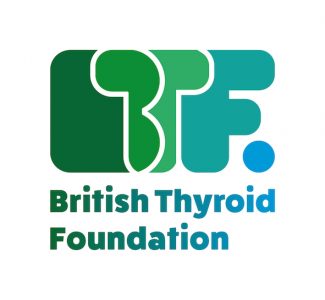
The BTF are currently raising awareness about thyroid disorders so that people are educated and know when to get help.
They are a charity organisation that provide reliable information and support patients with all thyroid disorders.
Many causes are unknown so every year the BTF offer £20,000 to researchers to help discover about thyroid disorders.
For more information, advice or to donate, click here.
Read more from Lara Tarabey

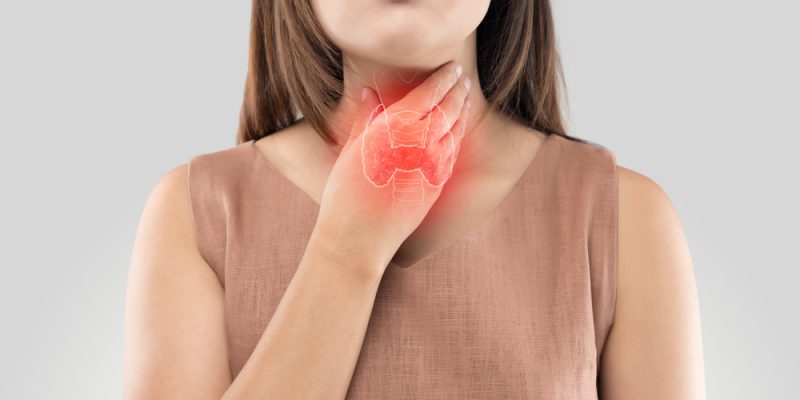
 Faith in veganism: Is eating meat unchristian?
Faith in veganism: Is eating meat unchristian?